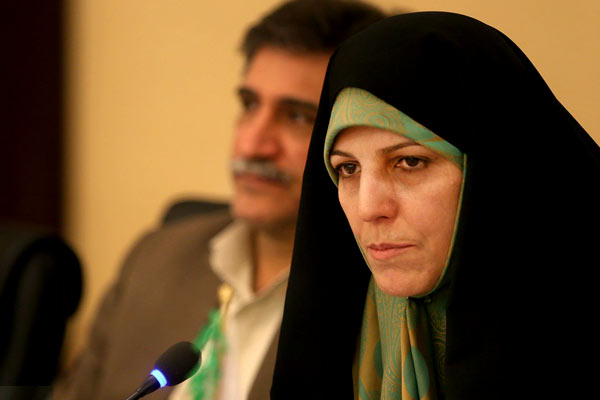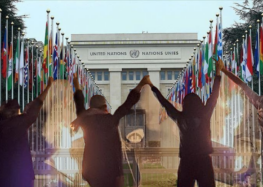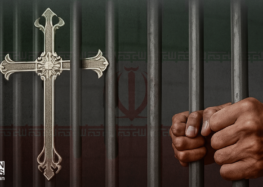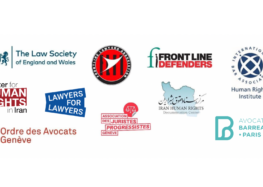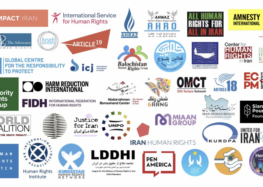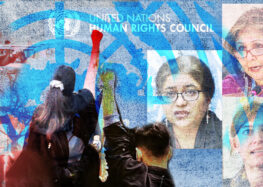Worsening Conditions for Women in Iran Begin to Draw Attention
Rouhani and Other Administration Officials Speak Out against Discrimination
Analysis– Almost two years after his 2013 election, President Hassan Rouhani and his Vice President for Women and Family Affairs, Shahindokht Molaverdi, spoke up against discrimination against women this week, in the face of steadily deteriorating conditions for women in Iran.
“The government considers it its duty to take necessary action for women to enjoy and utilize social opportunities,” said Rouhani on April 12, 2015. “The government will strive so that 50% of the society does not remain unemployed, isolated, and [Iran’s] second gender,” he added.
The Rouhani administration’s prioritization of the P5+1 negotiations over Iran’s nuclear program has effectively meant little attention paid to domestic issues, including women’s rights, despite his repeated campaign pledges to address discrimination against women. Some of the most repressive legislation in the history of the Islamic Republic of Iran, which has further restricted women in their social lives, employment opportunities, and health care, has been put forward during the past two years.
This includes the pending Plan to Promote Virtue and Prevent Vice, which explicitly calls for Basij militias to enforce strict hijab (female dress). This legislation not only violates the rights of all Iranian women, it also presents a danger to their continued safety. In March 2015, the International Campaign for Human Rights in Iran released a report, Vigilante Violence: The Acid Attacks against Women in Iran and the State’s Assault on Women’s Rights, which showed how this legislation has laid the groundwork for violent attacks against women in Iran and called on the Iranian Parliament to immediately withdraw the Plan.
In a rare direct reference to this Plan, Rouhani stated during the April 12 speech that, “We have no patriarchy nor matriarchy in Islam, what we have is a meritocracy. Men and women side by side by each other on social issues, are [the embodiment] of [the Islamic principle of] ‘promotion of virtue and prevention of vice.’ Although, unfortunately, in our society today, ‘prevention of vice’ has only been brought out on some streets, and against women at that.”
Rouhani continued, “Our biggest vice today is unemployment. This is the biggest factor in the country’s development today. The biggest vice is water shortages and drought. How come these vices and virtues have been discounted so low? Who has reduced vice and virtue to a few secondary Islamic principles?”
“Of course even the secondary Islamic principles are to be respected, but where is the prioritization? What are our society’s needs [at this time]?” he asked.
Referring to the Supreme Leader Ali Khamenei’s naming the new Iranian year, “The Year of Empathy and Compassion Between the State and the Nation,” Rouhani stated, “We cannot have empathy with only 50% of the society; rather, it must be realized in 100% of the society. Respect for women must be maintained at all levels.”
Other developments have also been observed with cautious optimism by proponents of women’s rights in Iran. On April 11, Rouhani’s Vice President for Women’s Affairs, Shahindokht Molaverdi, criticized the government’s recently announced quotas for government jobs. She objected to the fact that of the 2,284 announced positions, only 16 of them were designated as “women only” jobs, and 500 of them had unspecified gender requirements, with the vast majority of the slots reserved for men. She asserted in her speech that gender discrimination “does not correspond with the President’s promises.”
Earlier this month, two prominent Iranian human rights defenders, Nasrin Sotoudeh and Narges Mohammadi, expressed optimism over the recent moves in Iran to amend the laws banning women from sports stadiums, even as they noted that real and permanent changes would require time and sustained citizen support for their full realization. The moves to end the ban have followed an international outcry over Iran’s refusal to allow women to attend major sports events, which included statements by the president of FIFA (Fédération Internationale de Football Association) that the ban was “intolerable”. However, statements by the Iranian state officials that the ban would be at least partially lifted have been followed by conflicting statements by other officials claiming the issue has not yet been decided upon, indicating the issue is still making its way through the maze of Iranian domestic politics.
In his most recent report to the UN Human Rights Council, the UN Special Rapporteur on the situation of human rights in Iran, Ahmed Shaheed, stated that the situation of women in Iran had worsened since Rouhani’s election. “Concerns previously expressed over gender inequality in law and practice persist. Recent legislative attempts made by the Iranian Parliament appear to further restrict the rights of women to their full and equal enjoyment of internationally recognized rights,” the report stated.

